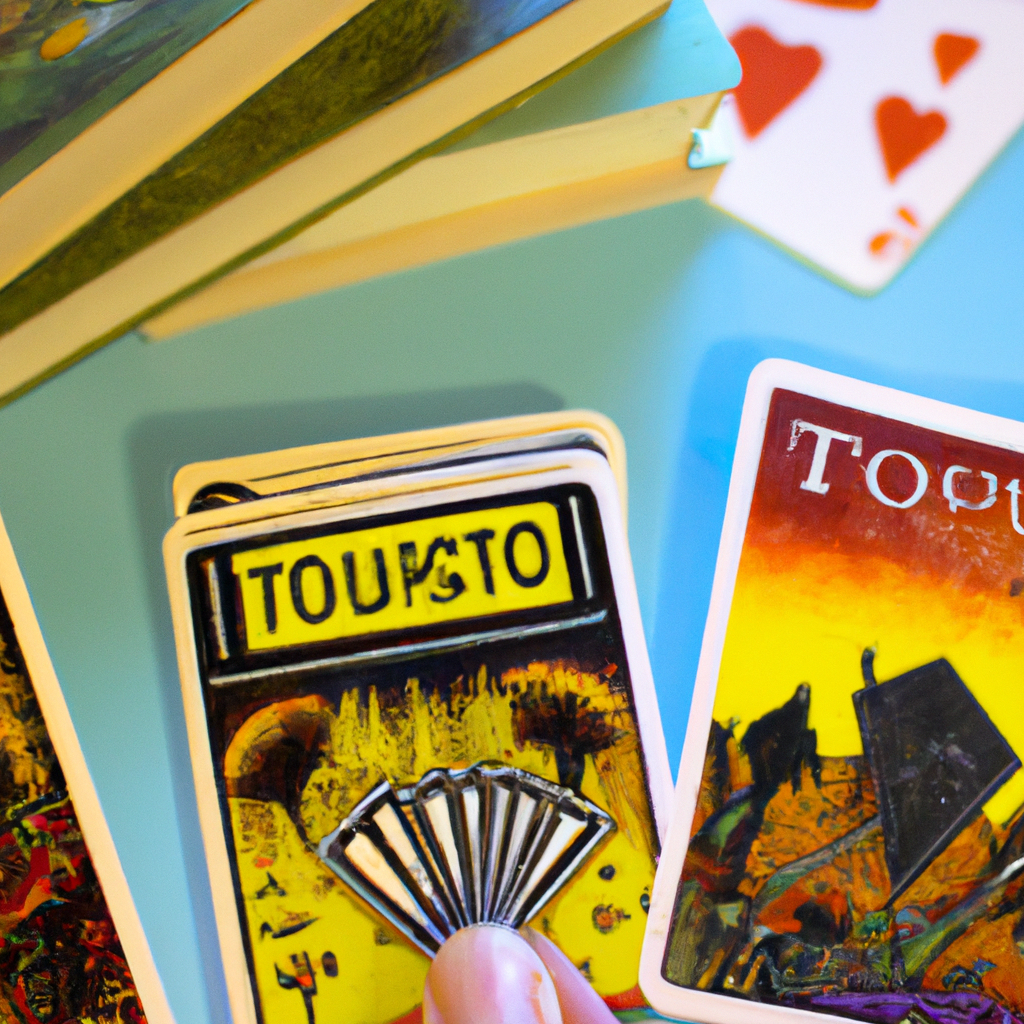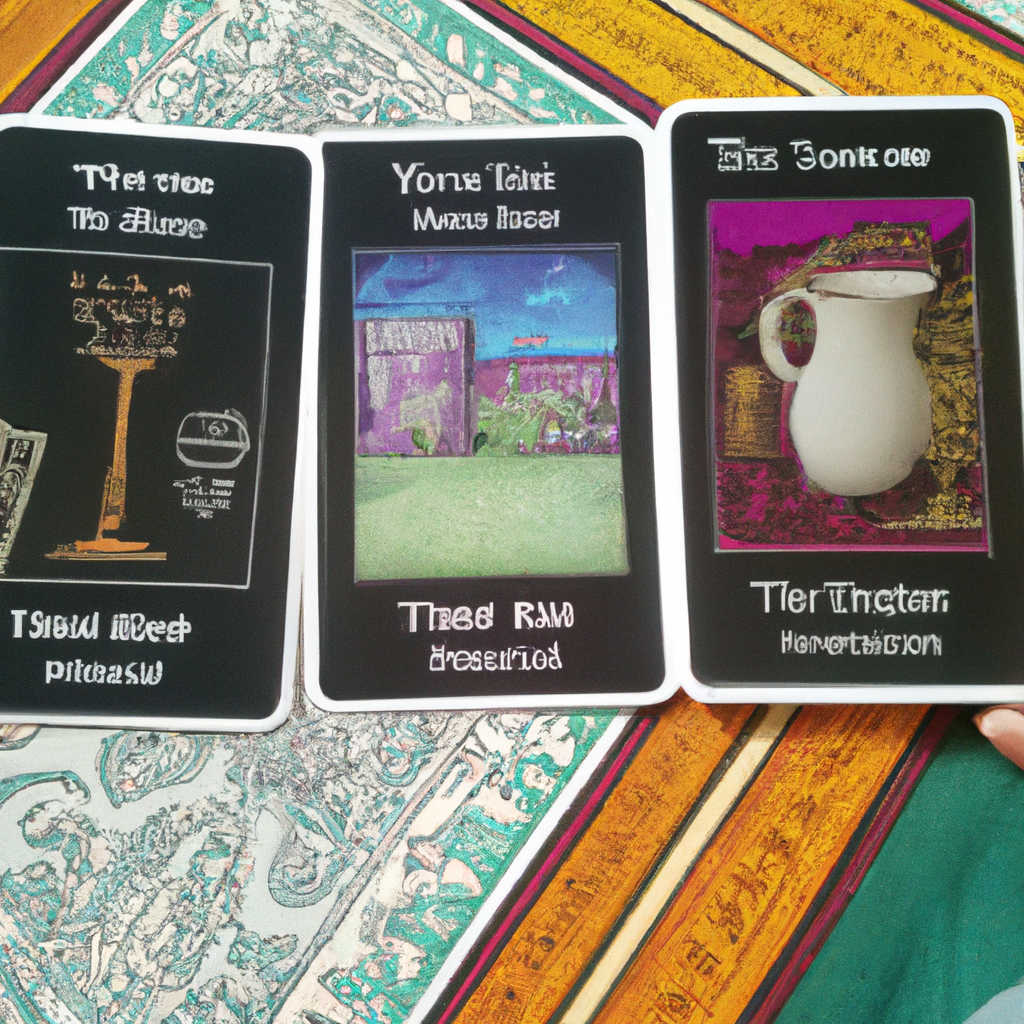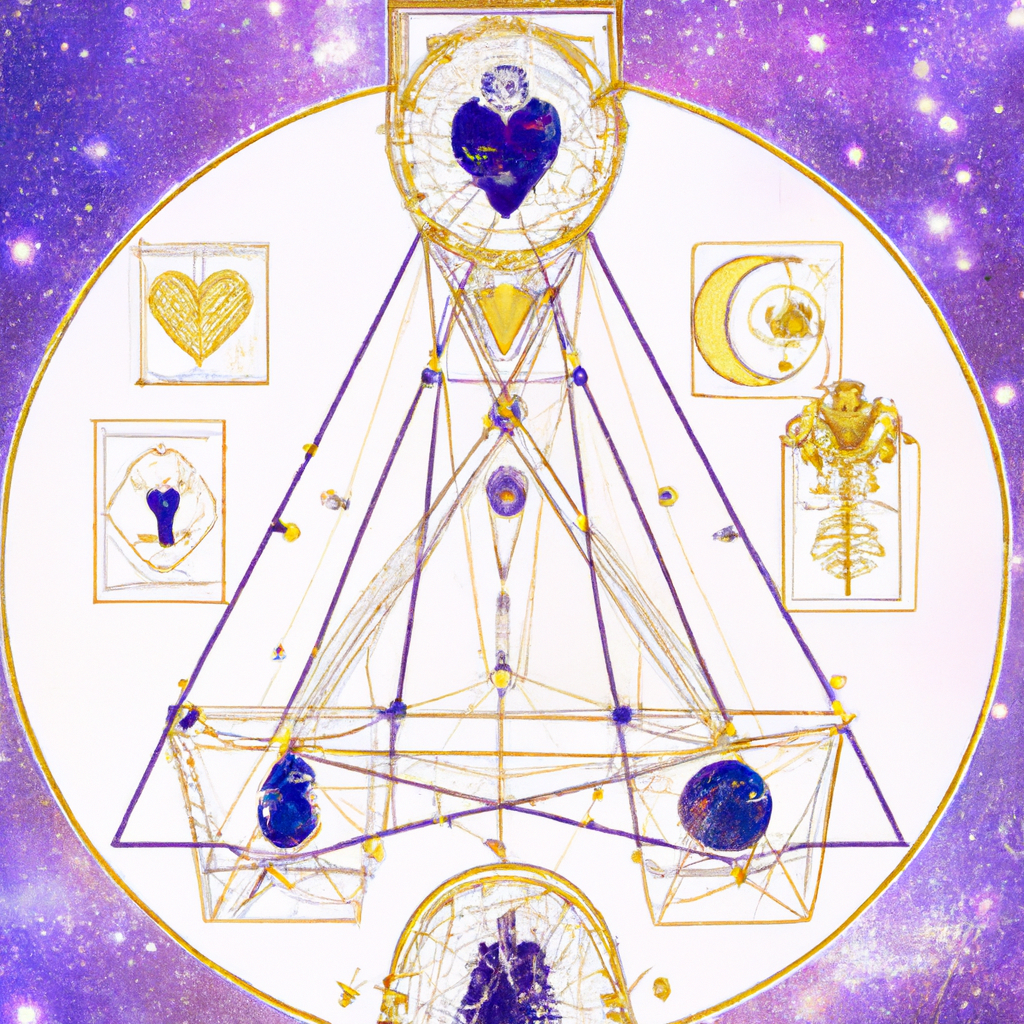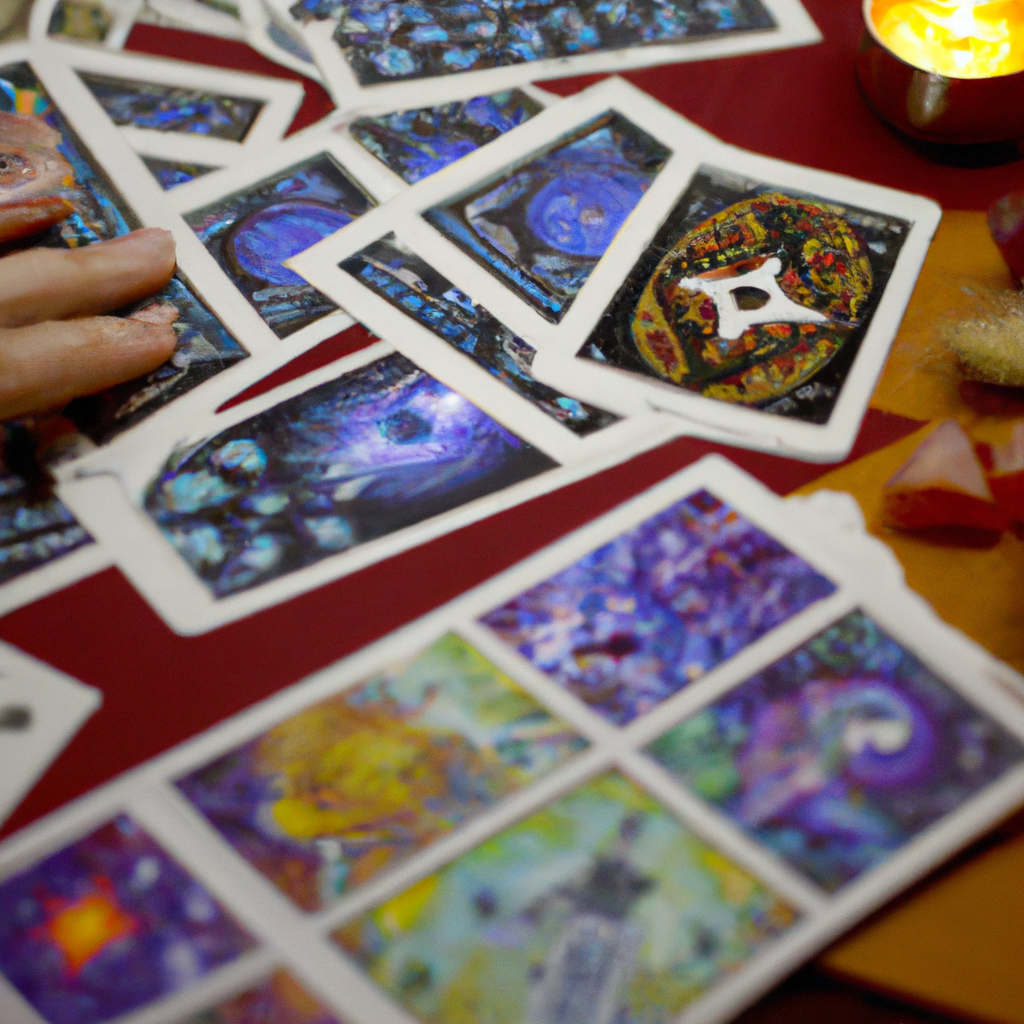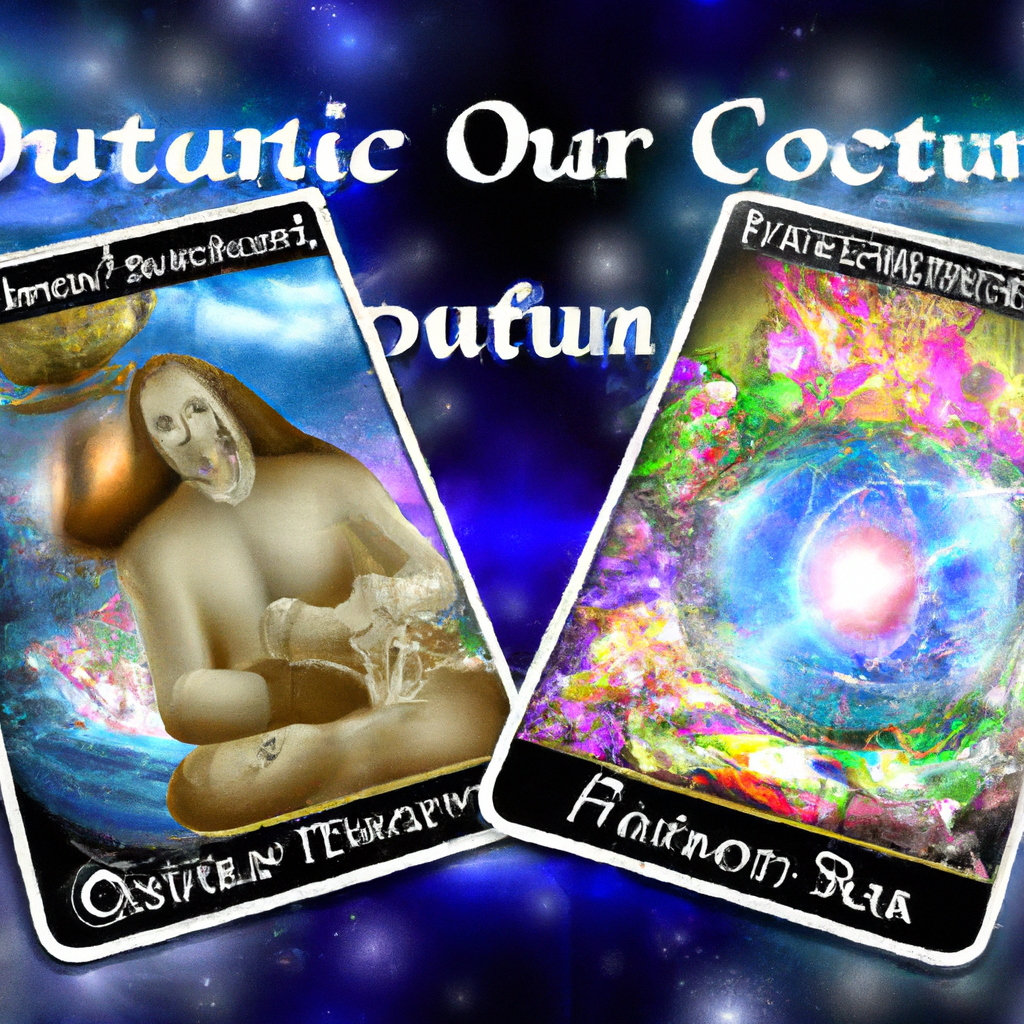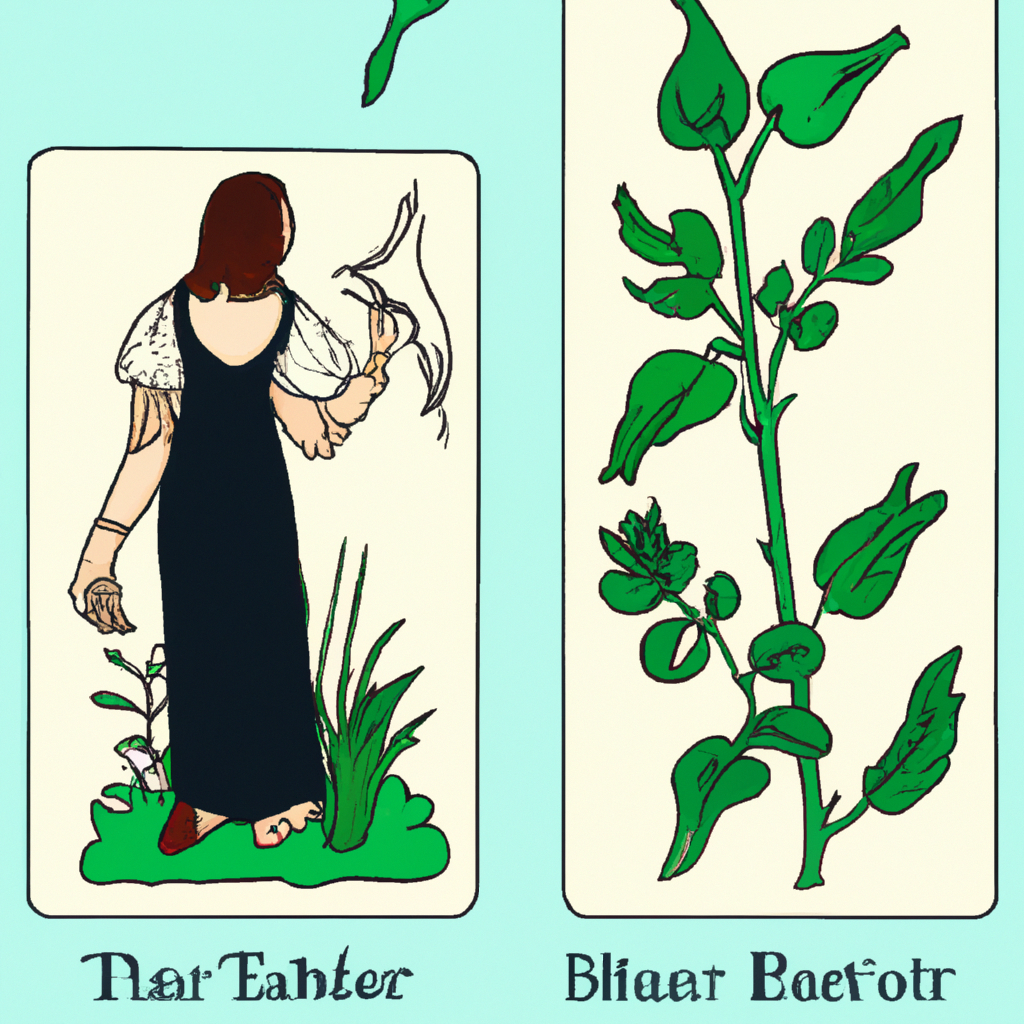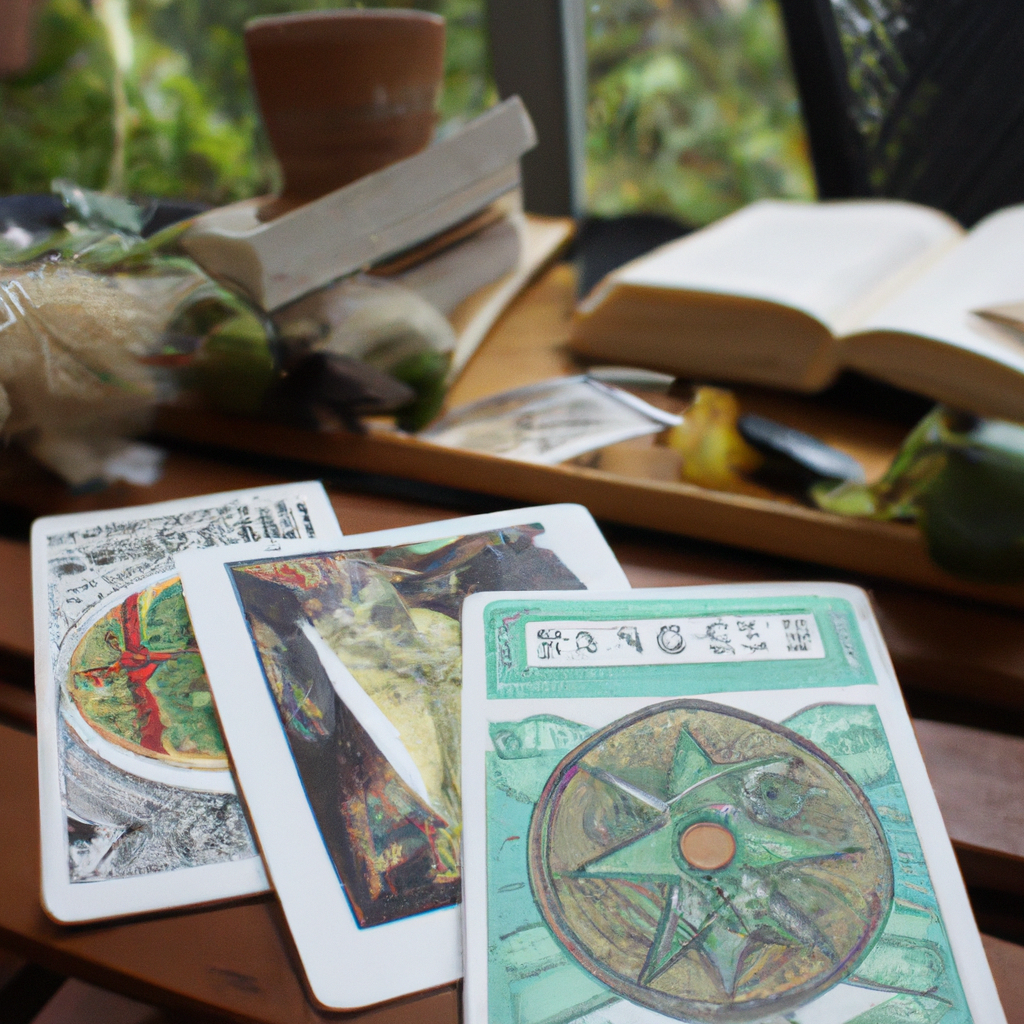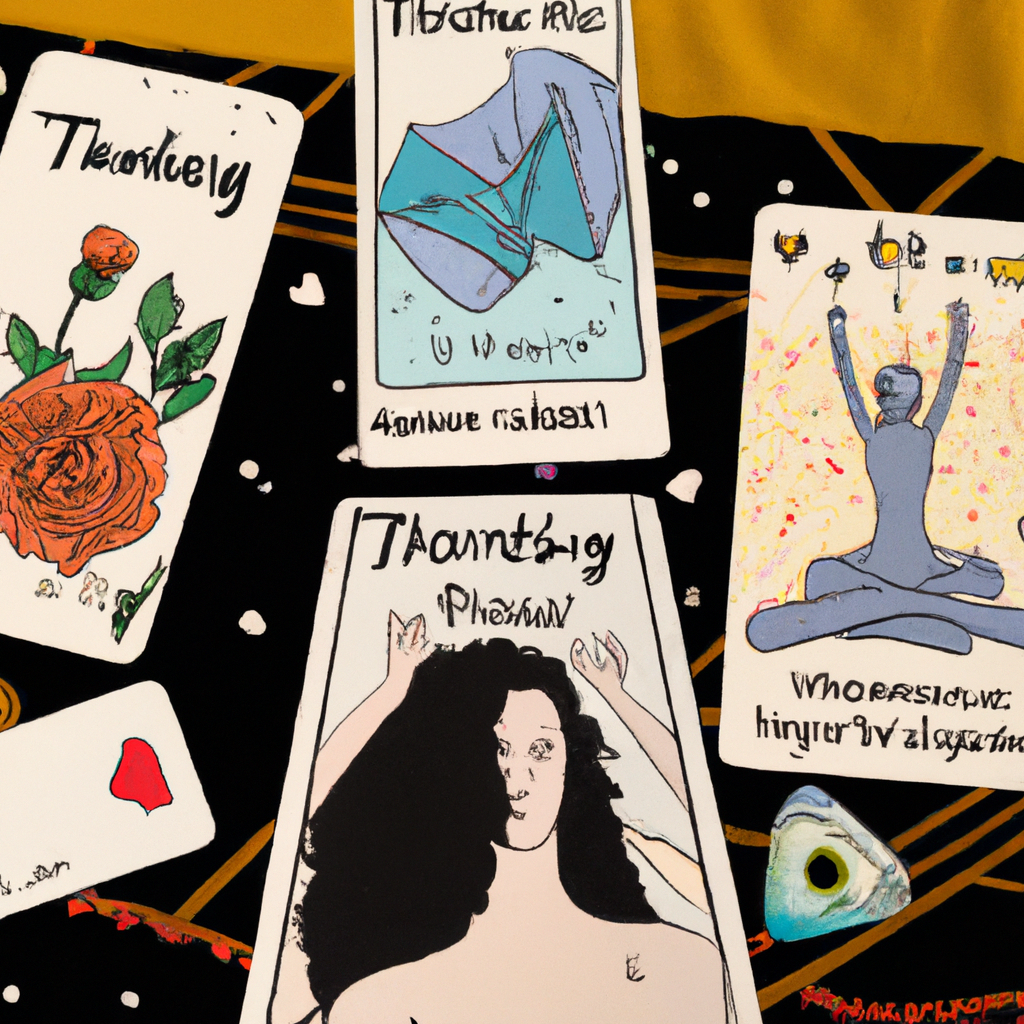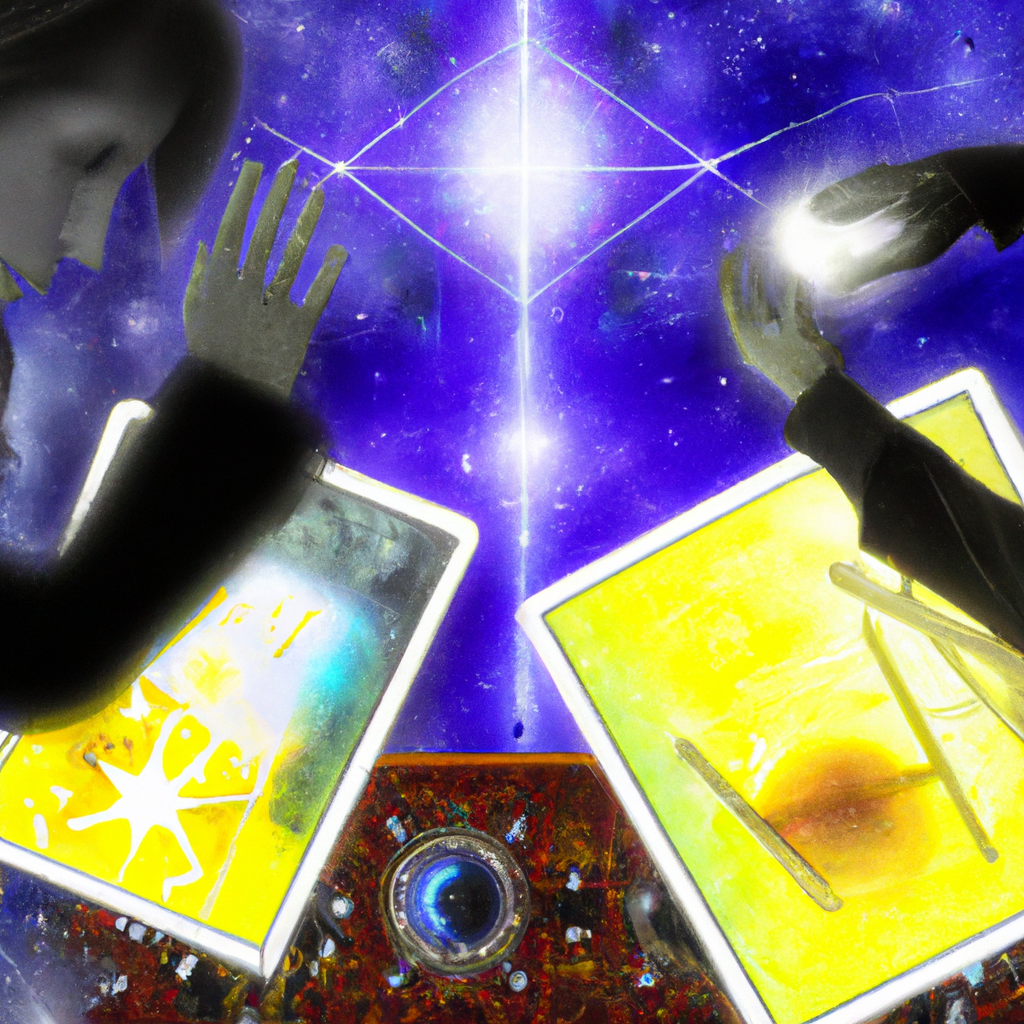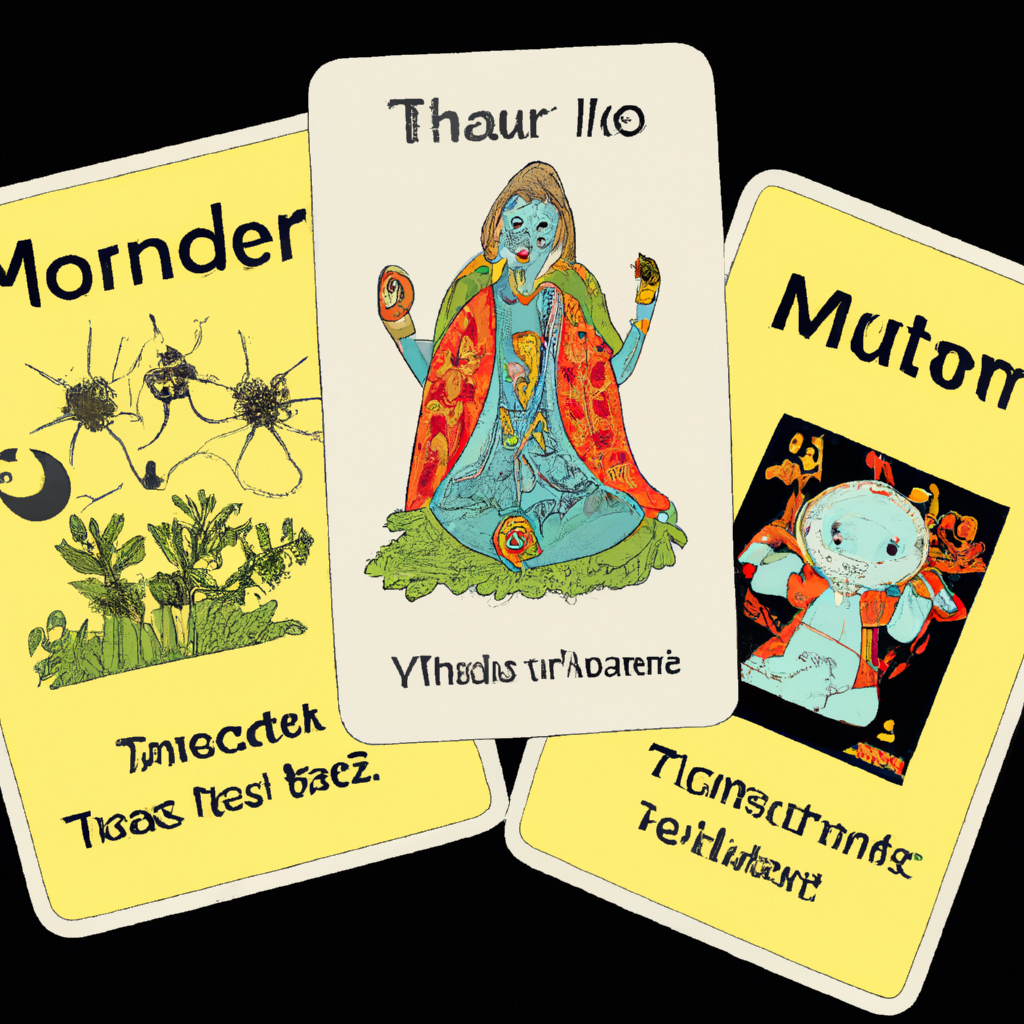Shopping Cart.
No products in the cart.
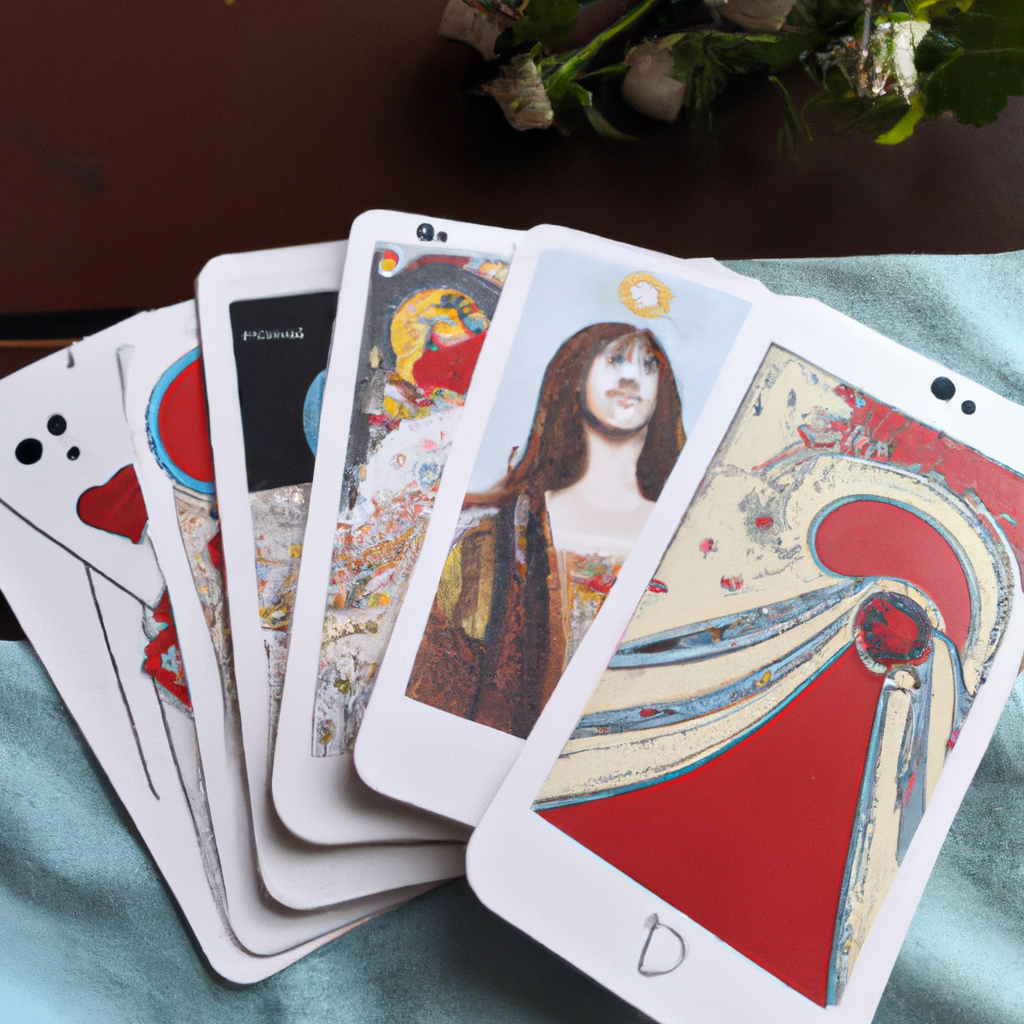
Tarot and Emotions: Navigating Feelings with the Cards
Have you ever found yourself in a whirlwind of emotions, unable to decipher what you’re truly feeling? Or perhaps you’ve been in a situation where you’re unsure of how to navigate your emotions? If so, you’re not alone. We’ve all been there, and it’s perfectly normal. Emotions can be complex and sometimes overwhelming, but there’s a unique tool that can help us understand and navigate them better – Tarot cards.
Now, before you raise an eyebrow, let me share a little story. A few years ago, I found myself in a similar emotional turmoil. I was going through a rough patch and was struggling to understand my feelings. A friend suggested a tarot card reading, and although I was skeptical at first, I decided to give it a try. To my surprise, it was an enlightening experience that helped me understand my emotions on a deeper level.
Tarot cards, contrary to popular belief, are not just about predicting the future. They are a powerful tool for introspection and self-discovery. Each card in the tarot deck represents different aspects of human experience, including emotions. When used correctly, they can provide profound insights into our emotional state and guide us towards emotional balance.
For instance, the Cups suit in the Tarot deck is directly linked to emotions, intuition, and relationships. A card like the Five of Cups can indicate feelings of loss or disappointment, while the Ten of Cups signifies emotional fulfillment and happiness. By drawing and interpreting these cards, we can gain a better understanding of our current emotional state and what we can do to improve it.
But it’s not just about understanding our emotions. Tarot cards can also help us navigate them. Let’s say you’re feeling anxious about a decision you have to make. A card like the Two of Swords, which represents indecision and stalemate, can guide you to confront your fears and make a choice. Or if you’re feeling stuck in a situation, the Wheel of Fortune card can remind you that life is a cycle of changes and that your current situation will not last forever.
Moreover, tarot cards can also help us understand the emotions of others. For example, if you’re having a conflict with someone and draw the Five of Wands, it can indicate that the person is feeling competitive or defensive. This insight can help you approach the situation with more empathy and understanding.
In essence, tarot cards serve as a mirror, reflecting our inner emotional world. They don’t tell us what to feel or how to feel. Instead, they provide a framework for understanding our emotions, making sense of them, and navigating them effectively. They encourage us to face our feelings head-on, to accept them, and to work through them.
So, the next time you find yourself in an emotional maze, consider turning to the tarot. Whether you’re feeling joy, sadness, anger, fear, or any other emotion, the cards can provide valuable insights and guidance. Remember, it’s not about predicting the future, but about understanding the present. And when we understand our emotions, we can navigate life with more clarity, balance, and joy.
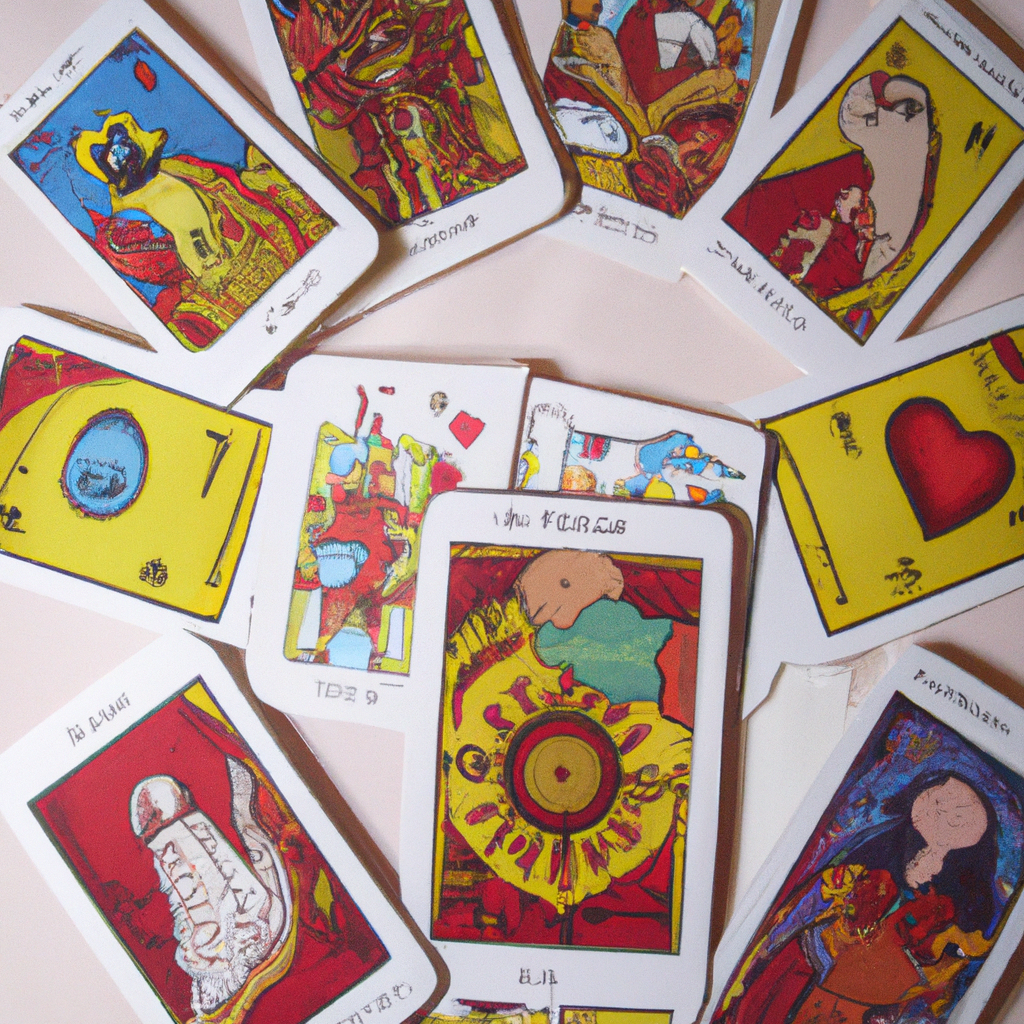
Tarot and Emotions: Navigating Feelings with the Cards
Have you ever found yourself in a whirlwind of emotions, unsure of how to navigate through the storm? We’ve all been there, and it’s in these moments that we often seek guidance and clarity. For some, this guidance comes in the form of a trusted friend or family member, for others, it’s a professional counselor or therapist. But for a growing number of people, the answers lie in the mystical world of tarot cards.
Tarot cards, with their rich symbolism and intricate imagery, have been used for centuries as a tool for introspection and self-discovery. But more recently, they’ve also been recognized for their potential in emotional healing. The idea might seem a bit unconventional, but when you think about it, it makes perfect sense. After all, emotions are complex, multi-faceted entities, much like the tarot cards themselves.
Imagine this: you’re feeling overwhelmed by a mix of emotions. You’re not sure what’s causing these feelings, or how to deal with them. You shuffle your tarot deck and draw a card. It’s the Five of Cups, a card often associated with loss and disappointment. But it’s also a card that speaks of healing and moving forward. Suddenly, you have a new perspective on your feelings. You realize that you’re grieving for something you’ve lost, but you also see that there’s a path forward. You feel a sense of relief, a lightness. You’ve not only identified your emotions, but you’ve also found a way to navigate through them.
This is the power of tarot in emotional healing. The cards serve as a mirror, reflecting our innermost feelings back to us. They help us identify and name our emotions, which is often the first step in dealing with them. But they also offer guidance and insight, showing us possible paths forward.
Of course, using tarot for emotional healing isn’t about predicting the future or finding definitive answers. It’s about exploration and discovery. It’s about opening up a dialogue with our emotions, understanding them, and learning how to navigate through them. It’s about finding healing and growth in the process.
And the beauty of it is that anyone can do it. You don’t need to be a seasoned tarot reader or a psychic medium. All you need is a tarot deck and an open mind. Start by drawing a card each day and reflecting on its meaning. How does it resonate with your current emotions? What insights does it offer? Over time, you’ll start to see patterns and gain a deeper understanding of your emotional landscape.
So, the next time you find yourself in an emotional storm, consider reaching for your tarot deck. You might be surprised at the clarity and guidance you find. And remember, it’s not about predicting the future, but about understanding the present. It’s about navigating through your emotions, one card at a time. After all, as the saying goes, the journey of a thousand miles begins with a single step. Or in this case, a single card.
Tarot and emotions are two concepts that have been intertwined for centuries. The mystical allure of tarot cards has captivated people from all walks of life, offering a unique perspective on the human experience. But beyond their aesthetic appeal and historical significance, tarot cards can serve as a powerful tool for emotional clarity and self-discovery.
Imagine you’re sitting in a cozy room, a deck of tarot cards spread out before you. The soft glow of candlelight dances across the intricate designs, each card a vibrant tapestry of symbols and images. As you shuffle the deck and draw a card, you’re not just selecting a piece of cardboard. You’re embarking on a journey into your own psyche, exploring the depths of your emotions and the contours of your inner world.
Each tarot card represents a different aspect of the human experience, from love and relationships to personal growth and spiritual enlightenment. When you draw a card, it’s like holding up a mirror to your soul. The card reflects your current emotional state, offering insights that can help you navigate your feelings and understand yourself on a deeper level.
For instance, drawing the Three of Swords might indicate feelings of heartbreak or betrayal. This card can serve as a reminder to acknowledge these emotions, rather than suppressing them or pretending they don’t exist. It’s a call to heal, to learn from the experience, and to grow stronger. On the other hand, the Ten of Cups signifies emotional fulfillment, happiness, and harmony. It’s a beacon of positivity, encouraging you to embrace joy and gratitude in your life.
But tarot isn’t just about identifying emotions. It’s also about understanding the root causes of these feelings and how they impact your life. The cards can reveal patterns and behaviors that might be contributing to your emotional state. For example, the Eight of Cups suggests a need to let go and move on from something that no longer serves you. It’s a nudge to examine your life and identify any areas where you might be holding onto the past or resisting change.
Moreover, tarot can guide you towards emotional growth and self-improvement. The cards can highlight areas where you need to focus your energy, whether it’s cultivating self-love with the Empress or learning to balance your emotions with Temperance. They can also provide guidance on how to navigate challenging situations, like dealing with conflict with the Five of Wands or overcoming fear with the Moon.
Of course, tarot isn’t a magic solution to all your emotional woes. It’s a tool, a guide, a friend that can help you navigate the complex labyrinth of your emotions. It’s a way to tap into your intuition, to connect with your inner wisdom, and to gain a deeper understanding of yourself and your emotional landscape.
So next time you’re feeling lost in the sea of emotions, consider turning to the tarot. Shuffle the deck, draw a card, and let the journey of self-discovery begin. Whether you’re seeking emotional clarity, looking for guidance, or simply curious about the mysteries of the human psyche, tarot can offer a unique and enlightening perspective. After all, the cards hold a world of emotions, waiting to be explored and understood.
In conclusion, Tarot cards can be a useful tool in navigating and understanding one’s emotions. They provide symbolic representations that can help individuals to introspect and explore their feelings in a more profound way. However, it’s important to remember that Tarot cards are not a definitive guide but rather a tool for self-reflection and personal growth.
